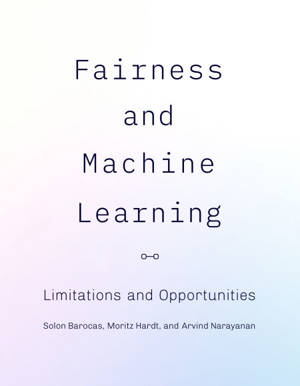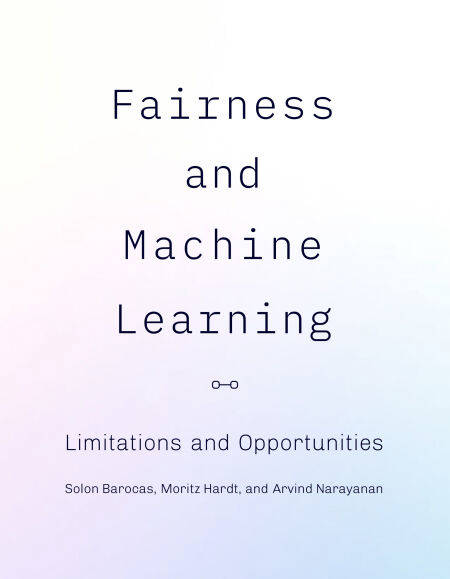
- Afhalen na 1 uur in een winkel met voorraad
- Gratis thuislevering in België vanaf € 30
- Ruim aanbod met 7 miljoen producten
- Afhalen na 1 uur in een winkel met voorraad
- Gratis thuislevering in België vanaf € 30
- Ruim aanbod met 7 miljoen producten
Zoeken
Fairness and Machine Learning E-BOOK
Limitations and Opportunities
Solon Barocas, Moritz Hardt, Arvind Narayanan
€ 64,07
+ 64 punten
Uitvoering
Omschrijving
An introduction to the intellectual foundations and practical utility of the recent work on fairness and machine learning.
Fairness and Machine Learning introduces advanced undergraduate and graduate students to the intellectual foundations of this recently emergent field, drawing on a diverse range of disciplinary perspectives to identify the opportunities and hazards of automated decision-making. It surveys the risks in many applications of machine learning and provides a review of an emerging set of proposed solutions, showing how even well-intentioned applications may give rise to objectionable results. It covers the statistical and causal measures used to evaluate the fairness of machine learning models as well as the procedural and substantive aspects of decision-making that are core to debates about fairness, including a review of legal and philosophical perspectives on discrimination. This incisive textbook prepares students of machine learning to do quantitative work on fairness while reflecting critically on its foundations and its practical utility.
• Introduces the technical and normative foundations of fairness in automated decision-making
• Covers the formal and computational methods for characterizing and addressing problems
• Provides a critical assessment of their intellectual foundations and practical utility
• Features rich pedagogy and extensive instructor resources
Fairness and Machine Learning introduces advanced undergraduate and graduate students to the intellectual foundations of this recently emergent field, drawing on a diverse range of disciplinary perspectives to identify the opportunities and hazards of automated decision-making. It surveys the risks in many applications of machine learning and provides a review of an emerging set of proposed solutions, showing how even well-intentioned applications may give rise to objectionable results. It covers the statistical and causal measures used to evaluate the fairness of machine learning models as well as the procedural and substantive aspects of decision-making that are core to debates about fairness, including a review of legal and philosophical perspectives on discrimination. This incisive textbook prepares students of machine learning to do quantitative work on fairness while reflecting critically on its foundations and its practical utility.
• Introduces the technical and normative foundations of fairness in automated decision-making
• Covers the formal and computational methods for characterizing and addressing problems
• Provides a critical assessment of their intellectual foundations and practical utility
• Features rich pedagogy and extensive instructor resources
Specificaties
Betrokkenen
- Auteur(s):
- Uitgeverij:
Inhoud
- Aantal bladzijden:
- 340
- Taal:
- Engels
- Reeks:
Eigenschappen
- Productcode (EAN):
- 9780262376525
- Verschijningsdatum:
- 18/12/2023
- Uitvoering:
- E-book
- Beveiligd met:
- Adobe DRM
- Formaat:
- ePub

Alleen bij Standaard Boekhandel
+ 64 punten op je klantenkaart van Standaard Boekhandel
Beoordelingen
We publiceren alleen reviews die voldoen aan de voorwaarden voor reviews. Bekijk onze voorwaarden voor reviews.







